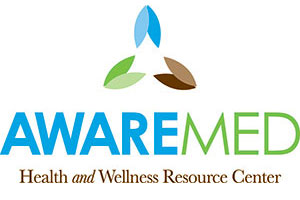Scleroderma Treatment in Abingdon, VA

The word scleroderma is derived from the Greek words "sclera," meaning hard, and "derma," meaning skin. Considered a group of rare autoimmune rheumatic diseases, rather than a single disease, scleroderma causes connective tissue—tissue such as fat and cartilage that bind other tissues and organs together—and skin to tighten and harden, as its name would suggest. Thought to involve the overproduction of collagen, scleroderma may also be influenced by genetics, environmental triggers and hormones, although an exact cause is still not fully understood.
In certain cases, scleroderma may only affect the skin; however, in others, it may also cause damage to key body structures including the blood vessels, lungs, digestive tract and kidneys. While there is no cure for scleroderma, treatment exists to alleviate your symptoms. To schedule a consultation with a qualified healthcare professional in Abingdon that specializes in scleroderma treatment, call (423) 482-8711 or contact Dr. Dalal Akoury online.
Types of Scleroderma
There are two main types of scleroderma: localized and systemic.
Localized scleroderma typically affects the skin and related tissues only, but may affect the muscle below it as well. Localized scleroderma is generally mild and may clear up on its own. Known forms of localized scleroderma include:
- Morphea scleroderma is characterized by hard, discolored patched on the skin.
- Linear scleroderma causes discolored lines or bands of thickened skin on the arms, legs or forehead.
Systemic scleroderma (also referred to as general scleroderma or systemic sclerosis) is the more serious form of the disease which can involve several internal organs in addition to the skin. Known forms of systemic scleroderma include:
- Limited scleroderma (also known as CREST scleroderma) forms gradually on the skin of the fingers, hands and face. It can cause damage to the lungs, esophagus and intestines.
- Diffuse scleroderma is the most severe of all forms of scleroderma and can develop suddenly initially causing skin to thicken in the extremities that spreads to the rest of the body. Organ disease can occur early in the disease’s progression.
Scleroderma Symptoms
The symptoms of scleroderma vary depending upon the type of scleroderma present. The first signs of scleroderma in most cases is the development of patches of hardened and tightened skin. Additional scleroderma symptoms include:
- Skin that appears shiny and smooth (due to tightness)
- Heartburn
- Cold fingers or toes that may become numb and turn red or blue (Raynaud's phenomenon )
- Painful joints
- Muscle weakness
- Swollen fingers or toes
- Ulcers on fingers or toes (often a result of Raynaud’s phenomenon)
- Diarrhea, constipation or other gastrointestinal upset
Scleroderma Diagnosis & Treatment
Often, scleroderma can be difficult to diagnose due to its widespread symptoms. If you or your healthcare provider suspect you are suffering from a form of scleroderma, your healthcare will begin with a physical examination to check for hardened patches of skin, and may take a skin biopsy to exam more thoroughly. In addition, a blood test may be recommended to check for certain antibodies that are present which are common in people with scleroderma.
Treatment of scleroderma disease will work to manage your symptoms and prevent organ damage, and may include:
- Medication to relieve pain (such as nonsteroidal anti-inflammatory drugs like ibuprofen), dilate blood vessels (to treat Raynaud's phenomenon), maintain health blood pressure or reduce stomach acid (to relieve heartburn)
- Immunosuppressive therapy to control the inflammatory response
- Physical therapy and exercises to reduce joint pain and increase mobility
- Topical ointments to address dry skin, itchiness and hard patches of skin
- Phototherapy to reduce skin hardness
- Intense pulsed light (IPL) therapy to help eliminate skin discoloration
The earlier treatment begins, the more effective it is at diminishing scleroderma. In general, hardened skin often clears on its own in 3 to 5 years; however, scleroderma does cause irreversible damage, so the condition should not be ignored.
Schedule a consultation with a healthcare provider in Abingdon equipped to provide you scleroderma treatment. Call (423) 482-8711 or contact Dr. Dalal Akoury online.
AWAREmed Health and Wellness Resource Center
Address
1604 Lamons LaneSuite 202
Johnson City, TN 37604
(423) 482-8711
www.awaremed.com
Hours
Mon:
9:00 am - 5:00 pm
Tue:
9:00 am - 5:00 pm
Wed:
9:00 am - 5:00 pm
Thu:
9:00 am - 5:00 pm
Fri:
9:00 am - 5:00 pm


